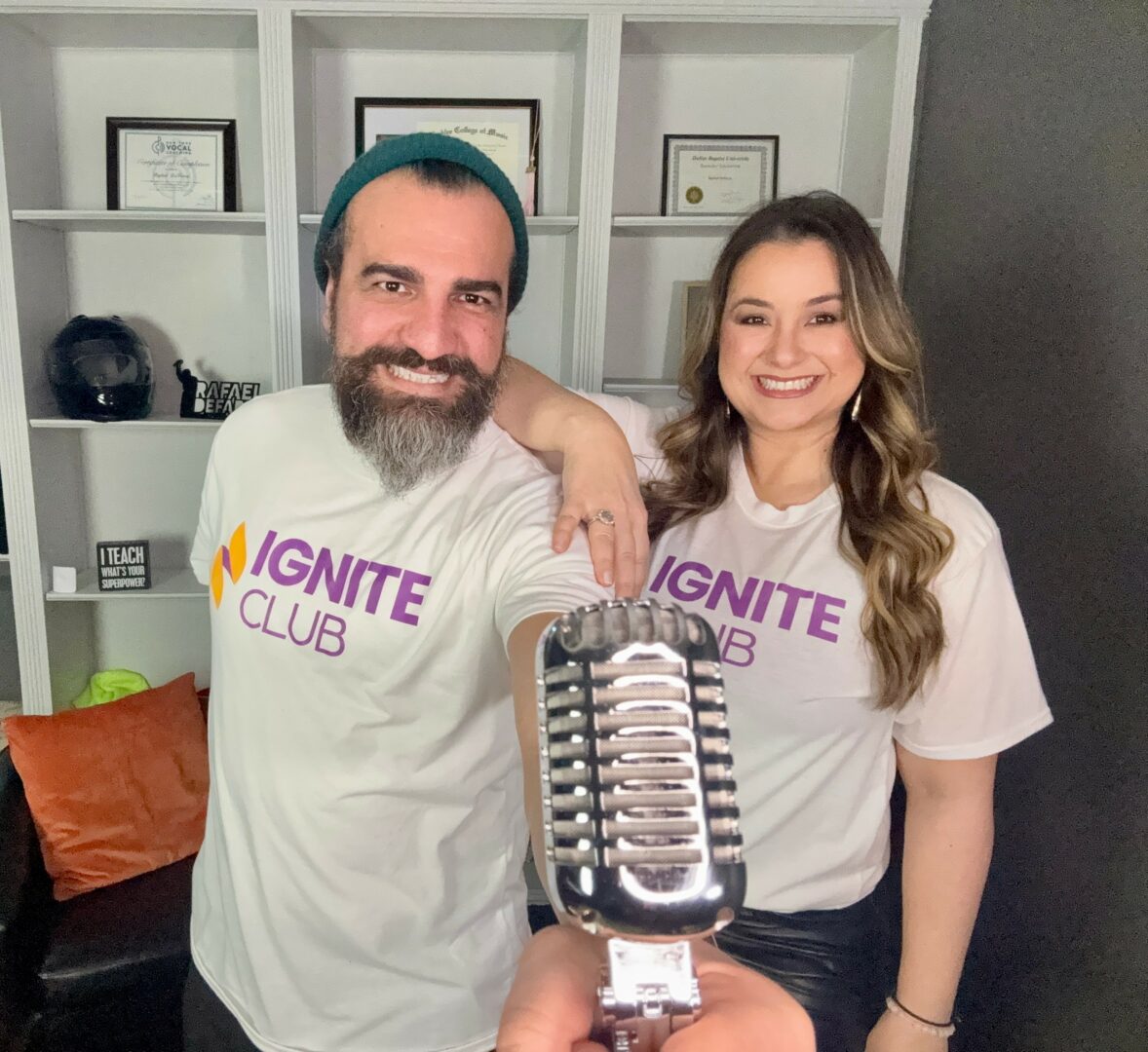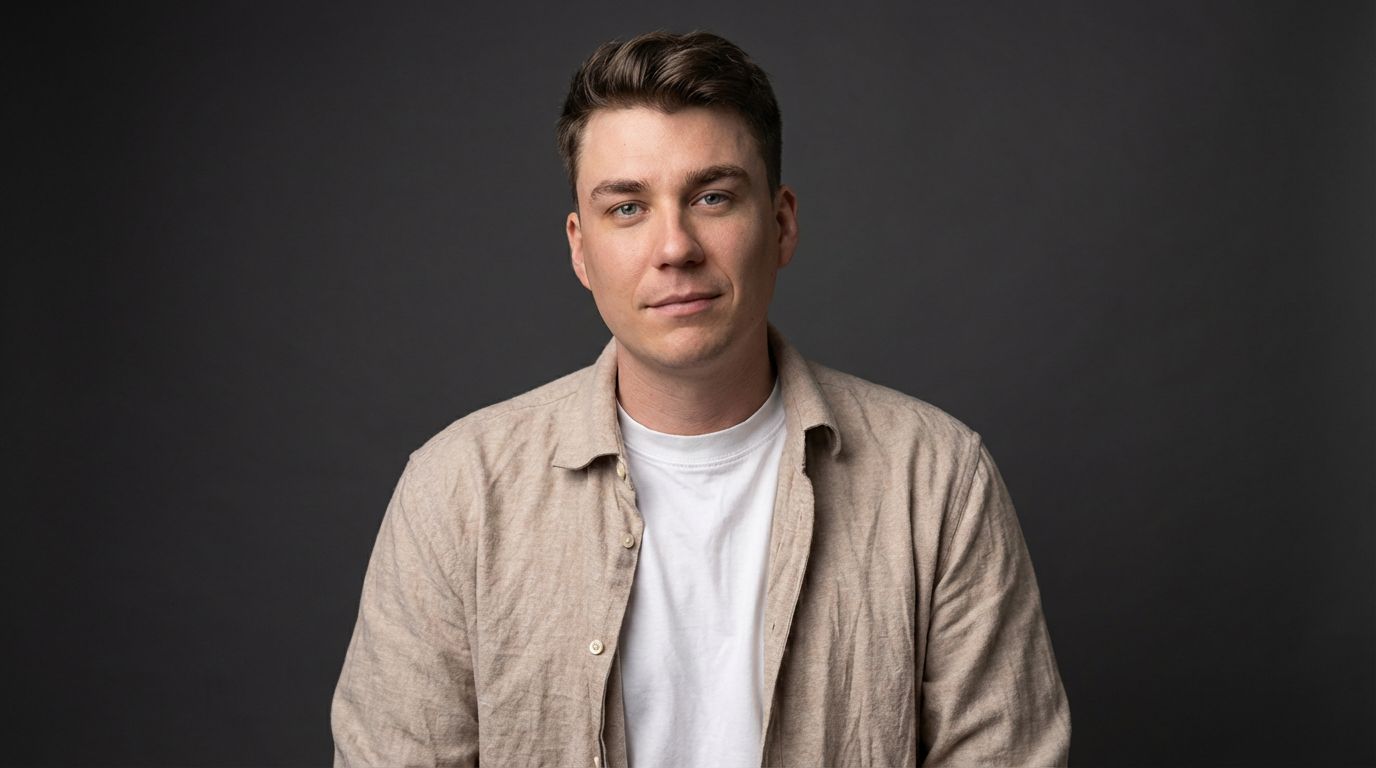We recently connected with Christopher Sebastian and have shared our conversation below.
Christopher, first a big thank you for taking the time to share your thoughts and insights with us today. I’m sure many of our readers will benefit from your wisdom, and one of the areas where we think your insight might be most helpful is related to imposter syndrome. Imposter syndrome is holding so many people back from reaching their true and highest potential and so we’d love to hear about your journey and how you overcame imposter syndrome.
I think imposter syndrome is something every young professional deals with at one time or another. From the start, you have to see that it does come from caring about the quality of your work, and that in itself is freeing! Because you care about how you present yourself to others, as well as doing the best job you can, that in itself will push your work to continue to improve and set you apart from the crowd.
But beyond that, there are 2 things that I have done to overcome imposter syndrome. The first is to treat every experience you have as an opportunity to grow. The most successful people I know are continually striving to learn and improve every element of their lives, and that is what sets them apart from the crowd. You’ll never be a finished product, and acknowledging that is so freeing! So if you are committed to showing up to every day of your life with the mindset to change and grow based on what is put in front of you, you’ll not only continue to progress in your career and life, but you’ll also create a mindset of openness and competency, which serves you well in overcoming the feeling of not being good enough.
The second way to healthily engage with feelings of imposter syndrome is to foster humility in your daily life. In my own life I’ve seen that my feeling of being not good enough typically comes from comparing myself to others in a way that isn’t healthy. There can be a healthy sense of pushing yourself to improve, as addressed above, but the pressure to be the absolute best, or not be left behind, creates a scarcity mindset that there isn’t room for multiple people to be good enough in any given field. So either you or someone else is the imposter, and that’s where insecurity feasts. But if you have a sense of humility and can admit it when you don’t know the answer, or when you are honest about an area in which you can improve, it’s another freeing experience that allows for growth!
At the end of the day, you are a unique individual with God-given talents, and you have those for a reason. You have something that only you can bring to the table, and that has worth and value, even if you don’t feel it in any given moment.
Appreciate the insights and wisdom. Before we dig deeper and ask you about the skills that matter and more, maybe you can tell our readers about yourself?
Absolutely! As a professional, I’ve found that it is most fulfilling for me to work in several areas that are complementary. I work for a Distance-Learning School, Mother of Divine Grace (MODG), as their Director of Advancement, helping families pursue the mission of Home Education through Development Work, Financial Aid, and Communications. My background is in Communications and Marketing, and I absolutely love connecting with our families, students, and donors. We serve students from Pre-K all the way through 12th grade! The mission of MODG is one that I personally believe in, as I myself am a graduate of our program, and have worked with the school for 15 years in a variety of capacities. Even though I am mostly on the administrative side, I still stay connected to our mission by teaching a literature course every year. At the end of the day, if you’re in education it’s really important to be working with the students, and they continually edify and inspire me! I hear a lot of complaints about differences between generations, but I see so often in our students a desire and willingness to grow and do God’s Will each and every day, and while that might look a little different from a couple of decades ago, I have great hope for the future, and I know we are in good hands!
I also love hospitality and education in every element of my life, so I also am a founder and Whiskey Curator for Blind Barrels, a Whiskey Tasting Experience Subscription! We tell the stories of small craft whiskey producers from all across the country, helping these small businesses reach new consumers and spread word about the amazing things they are doing. We have a pretty incredible community of over 1500 enthusiasts who love trying new things and supporting some excellent brands who are doing incredibly innovative things in the whiskey space. This is something I’ve long been passionate about on a personal side, and it’s been unbelievable to build a business with my inspiring team. Being involved with a startup is a lot of work, but it’s also amazingly rewarding, and another avenue to educate and welcome people into the world of whiskey!
Looking back, what do you think were the three qualities, skills, or areas of knowledge that were most impactful in your journey? What advice do you have for folks who are early in their journey in terms of how they can best develop or improve on these?
For my own journey several skills pop up. And I want to say that I think these skills aren’t just things you’re born with, but attributes that you can gain through developing habits!
Firstly, if you want to be something, you have to act like you already are that thing. Now, I don’t mean being cocky, but honestly looking at your desired result and seeing what attributes exist there. For instance, if you want to be a grateful person, maybe you always write a thank you card after someone invites you over for dinner. Or, if you want to be taken seriously in conversations about movies or literature, you have to watch movies and read books! This might seem obvious, but setting concrete goals about your desired outcomes will significantly increase the likelihood of your success. The book “Atomic Habits” by James Clear is a great resource for this!
Secondly, as I said before, the importance of humility cannot be overstated. Once your mindset has shifted away from unhealthy comparison to an eager desire for growth and knowledge, not only will you be more at peace, but you also will attract others who are comfortable being around you! That confidence in knowing what you don’t know sets people at ease and is a huge asset for personal growth and building a community around you.
Lastly, foster integrity in your life. This isn’t just the same as honesty, although it’s an element, but it involves being a whole (integral) person in every area of your life. Integrity isn’t something that is 100% or broken, but is about following through with commitments, and, if you can’t reach the intended goal, being open, direct, and honest about why it didn’t happen, and how you can still work on meeting that goal, with an adjustment. For instance, if you are running late for a meeting, send the text telling your team when you’ll be there! That gains their confidence that you respect their time, and also sets a clear expectation for what is to come. “Speak the Unspoken” is something I preach all the time – you’d be surprised what pops up in people’s minds if you assume they know what you’re going to tell them! (This is good advice for both business and personal relationships!)
We’ve all got limited resources, time, energy, focus etc – so if you had to choose between going all in on your strengths or working on areas where you aren’t as strong, what would you choose?
I truly believe that it is very important to work on your areas of weakness, as a well-rounded individual is able to tackle whatever is thrown at them. Now, don’t get me wrong, it’s necessary for this to know your strengths too, and you should lean into those, but the feeling of being able to improve an area that you aren’t strong in is not only empowering, but is an incredible way to caretake the talents that God gave you. The book “An Everyone Culture” talks about the concept of working on your “backhand”, having individuals work on their areas of weakness in an environment that provides guidance, feedback, and support. These are all necessary, and whether your supportive community comes from your family, friends, church, or workplace, fostering structured feedback is necessary for growth and helping you reach your full potential. Once you see that you are able to improve on these less-strong attributes, you are able to gain the habits to unlock so many more opportunities for yourself! This is what I’ve seen the happiest people in my own life do.
Contact Info:
- Website: www.modg.org www.blindbarrels.com









